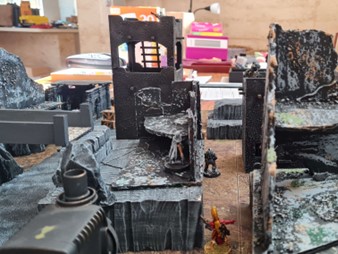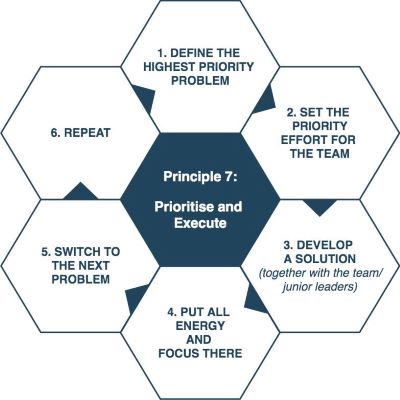Last month, twelve of my friends gathered for MartyCon 2024. This weekend gaming extravaganza transcended mere entertainment to become an immersive experience in camaraderie and even leadership development. MartyCon, named in honor of its founder Marty, brought together enthusiasts of various games for a weekend of epic adventures.
What was MartyCon?
Attendees were spoiled for choice with a diverse array of gaming sessions to participate in. There was something for everyone. From classic RPGs in the vein of Dungeons & Dragons to intricate miniature battles set in fantastical worlds. Attendees had the freedom to pick and choose which games they wanted to partake in. Giving each participant an experience tailored to their interests and time commitment.
What made the MartyCon weekend truly special was the blend of competitive and collaborative games. In one session, players found themselves thrust into a game where each had secret objectives. This forced them to form alliances, make calculated moves, and pursue objectives with limited information. The dynamic nature of this game fostered intense strategizing and negotiation among players, leading to memorable moments of triumph and betrayal.

Another session involved players trying to escape a mining planet in the midst of a revolt. Although the games master used the horror RPG Those Dark Places, he also had us all out of our seats hunting the grounds of our accommodation. Hidden QR codes then led us towards building lego models under extreme time pressure. Failure meant our characters would be left to rot on a hostile planet. Interestingly, no one took the lead. Instead, with a clear goal in mind (escaping the planet), the participants all worked together seamlessly to build our escape craft.
A different game was based in Dolmenwood a fantasy world based on the folklore of the British Isles. One of the things that made this game so unique was the lethality of the system. Characters could die with ease. After a near death experience at the hands of an ogre the players started to work more closely together. Utilizing skills and tactics to uncover the mystery and defeat the big bad and his zombie pets. (That’s a story for another time).
MartyCon, a Blueprint for Leadership Development?
The parallels between the gaming experience at MartyCon and leadership development are striking. Much like in a leadership scenario, participants had to navigate complex social dynamics, forge alliances, and make decisions with incomplete information. Of course, the game where players had secret objectives particularly mirrored real-life leadership challenges. Where individuals must balance their own objectives with the needs of the group.
Imagine a day where different game types could be utilized to cultivate various leadership skills. Picture networking with your leadership cohort, immersing yourselves in different gaming scenarios, and using each experience as an opportunity to learn and grow. Through gaming, participants could sharpen their communication, negotiation, and decision-making skills—essential qualities for effective leadership.
Moreover, the MartyCon weekend provided a platform for attendees to build meaningful connections with their peers. Just as in a professional setting, collaboration and teamwork were essential for success in many of the games. Participants had the chance to work together, strategize, and celebrate victories as a cohesive unit. Ultimately, these shared experiences fostered bonds that transcended the gaming table, laying the foundation for lasting friendships and professional relationships.

Final Thoughts on the MartyCon Weekend
Traditional methods of leadership development often rely on lectures and simulations, but MartyCon demonstrates the power of experiential learning through gaming. By immersing participants in dynamic, challenging scenarios, gaming can serve as a catalyst for personal and professional growth.
As MartyCon 2024 came to a close, attendees departed with fond memories of epic battles, thrilling adventures, and new friendships. Yet, perhaps more importantly, they left with valuable lessons in leadership, collaboration, and adaptability. MartyCon stands as a testament to the transformative potential of gaming—a realm where fantasy and reality converge, and where leaders are forged through adventure.
Massive thanks to everyone who organized, ran games and participated. I cant wait for MartyCon 2025!



